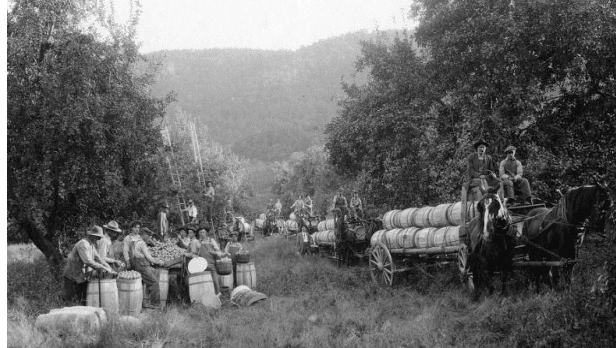The cultivation of apples dates back thousands of years, with evidence of apple seeds and pollen being found in ancient archaeological sites in Europe and Asia. The wild ancestor of modern apples is believed to have originated in the mountainous regions of Kazakhstan, and spread to other parts of the world through human migration and trade.
The ancient Greeks and Romans were known to have grown apples, and the fruit was also popular among the ancient Celts and Germans. In medieval Europe, apples were a common food source for peasants, and were also used to make cider and apple brandy. The first apple orchards in North America were planted by European settlers in the 17th century, and apple cultivation soon became a major industry in the United States.
As apple cultivation spread around the world, different varieties of apples were developed to suit different growing conditions and culinary preferences. The invention of new grafting techniques in the 19th century allowed for more precise control over the characteristics of apple trees, and led to the development of new apple varieties with desirable traits such as disease resistance, larger fruit size, and improved flavor.
In the 20th century, the apple industry underwent significant changes as new technologies were developed for fruit production, storage, and transportation. The widespread use of refrigeration and controlled atmosphere storage allowed for apples to be stored for longer periods of time, while the development of new pesticides and disease-resistant varieties allowed for increased yields and reduced crop losses.
Today, the global apple industry is worth billions of dollars, and apples are grown on every continent except Antarctica. Some of the most popular apple varieties include the Red Delicious, Granny Smith, Gala, and Honeycrisp, and apples are used in a variety of dishes and beverages around the world. In recent years, there has been a growing interest in organic and sustainable apple production, as consumers become more concerned about the environmental impact of conventional farming practices.

No comments:
Post a Comment